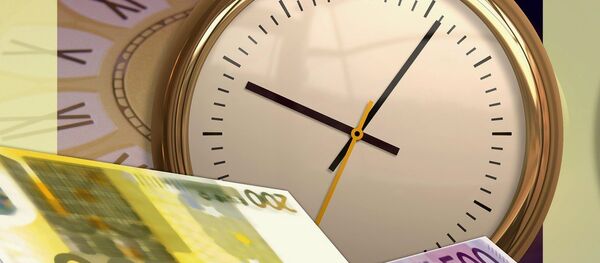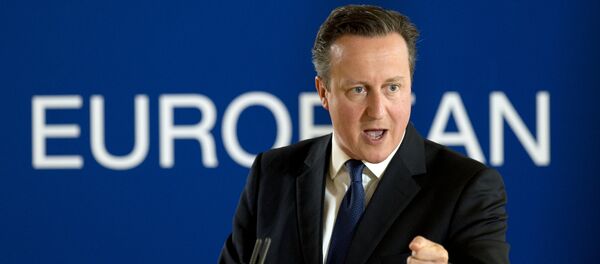The second quarter figures have filled UK businesses and the British government with plenty of optimism, after the country's gross domestic product (GDP) rose by 0.7 percent compared to the first three months of 2015.
UK GDP rose an impressive 0.7% in Q2, taking GDP 5.2% above it's pre-recession peak http://t.co/OQAg4CQCk6 pic.twitter.com/fTIh3tmF0L
— Chris Williamson (@WilliamsonChris) July 28, 2015
Significantly, the GDP growth experienced from April to June means that Britain's economic output has finally reached the same levels achieved before the 2008 global financial crisis, according to the UK's Office for National Statistics (ONS).
"The 0.7% increase in GDP growth in Quarter 2 (Apr to June) 2015 implies that GDP per head would be broadly equal to the pre-economic downturn peak in Quarter 1 (Jan to Mar) 2008."
The latest figures, also showed that the UK has now experienced 10 straight quarters of growth, which combined with falling unemployment figures has many within the country's Conservative government optimistic that Britain's economic recovery is well on track.
GDP growth 0.7%. Shows Britain motoring ahead with economy producing as much per head as ever before. We must stay on road we've set out on
— George Osborne (@George_Osborne) July 28, 2015
UK Surges, Eurozone Struggles
While the UK's GDP growth has been widely applauded internally, perhaps the figures are even more encouraging when compared to other nations, particularly those within the Eurozone.
Conversely, they can also be seen as increasingly concerning for countries in the single-market, with many still suffering from sluggish economies.
While other countries are expected to report their economic data in the next few weeks, the British result has seen the UK's economy surge past Germany's in terms of GDP growth since 2008.
In fact, compared to other G7 nations, the UK is now the third fastest growing member since the financial crisis, sitting behind only Canada and the US, while it has performed far stronger than France and Italy over the same period.
If it maintains its current levels, the UK is expected to grow by 2.6 percent in 2015, compared to 1.7 percent in Germany, 1.2 percent in France and a combined Eurozone growth of 1.5 percent.
Is Life Better Without the Euro?
All of the recent economic data isn't pretty reading for Eurozone countries, which have been struggling to shrug off the effects of the 2008 financial crisis.
Many economists and analysts have said that the Eurozone's inherent structural problems have prevented member countries from overcoming their own financial troubles, with the concept of the currency union considered to be one of the major issues.
EU countries that opted out of the euro, such as the UK and Sweden, have both recovered faster than many within the Eurozone, while Switzerland's economic growth has also fueled EU critics with more speculation that the single-market is in fact hurting member countries.
Adding to the criticism was the International Monetary Fund (IMF), which said the Eurozone needed to speed up its reforms process to reverse trends and improve its overall function, noting that it has "deep-rooted structural weaknesses".
The struggles of the countries involved in the single-currency has led many critics to call for the concept to be abolished, unless dramatic changes are made.





